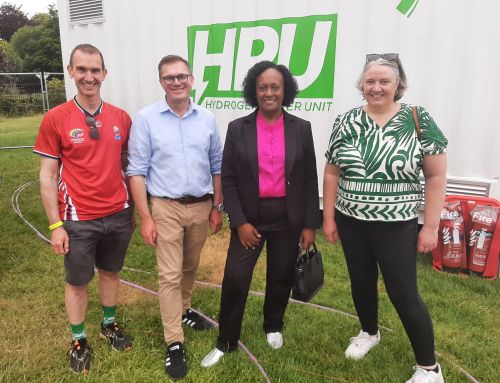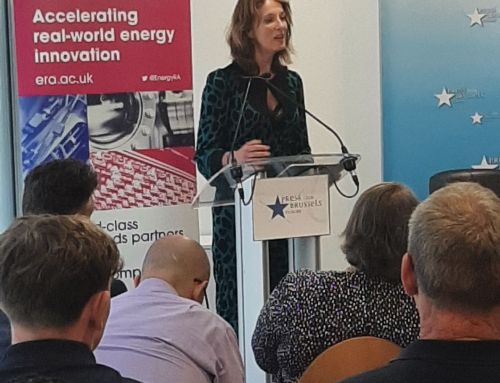Energy Research Accelerator’s Policy Commission calls for creation of a Net-Zero Delivery Unit at the top of government
ERA launches Policy Commission report: ‘Assessing the Case for Public […]

- ERA launches Policy Commission report: ‘Assessing the Case for Public Ownership in the Energy Sector’
- Report calls for establishment of Net Zero Delivery Unit with power to direct and hold to account all ministries, with equal status to the Treasury.
- Planning, grid access and market reform need to be acted on with haste.
- ERA recommends that GB Energy is established but should not interfere with the UK Infrastructure Bank and GB Nuclear which are well underway to being established
- Significant government investment is needed in early-stage technologies and strategic infrastructure.
On Wednesday 31st January at the House of Lords, the Energy Research Accelerator (ERA) is launching its policy commission report, ‘Assessing the Case for Public Ownership in the Energy Sector’.
An idea gaining traction in the UK is a return to public ownership in energy. For many, the example of European state-owned energy companies such as Orsted, Statkraft and EDF, is compelling. These companies combine development of low carbon energies with wider economic benefits including support for local supply chains and jobs. Is it now time for the UK to create its own national energy champion?
The Energy Research Accelerator’s Policy Commission was undertaken in response to Labour’s idea of establishing GB Energy, and ERA has conducted a number of detailed consultations over the last few months with senior figures from energy, finance, academia, trade unions and other sectors.
The main conclusion of the report is that the government needs to introduce a Net-Zero Delivery Unit. The report concludes that this is a vital reform because responsibility for net-zero policies cuts across many different ministries, devolved administrations, local authorities, regulators and companies. There is currently no single ministry or minister responsible for the targets with powers to hold others to account and there is no single point of contact for companies and civil groups trying to overcome barriers to net-zero.
ERA recommends that the Net-Zero Delivery Unit needs to sit at the very top of government with equal status to the Treasury. The report argues that the Net-Zero Delivery Unit should have the power to direct all relevant government ministries and organisations.
The report advises that the Net-Zero Delivery Unit’s job is not to devise policy but to make sure existing targets and deadlines are met, and to overcome barriers. It should be explicitly focused on net-zero and have powers over Whitehall departments, regional and local authorities, Ofgem, National Grid, Distribution Network Operators, Gas Distributions Networks, and indeed GB Energy, UK Infrastructure Bank and the National Wealth Fund.
On the subject of Labour’s GB Energy, ERA believes that it should be established but that its focus should be on Local Power Planning, Local Area Energy Planning and the collective procurement of transmission assets. The policy commission also recommends that GB Energy should not interfere with the UK Infrastructure Bank and GB Nuclear, which are well underway to being established.
The ERA report also suggests that the government needs to pursue planning, grid access and market reform as quickly as possible in order to encourage renewable development and reduce the effect of marginal gas pricing on retail prices.
On new technologies, ERA is calling for investment in early-stage clean energy technologies and strategic infrastructure through the UK Infrastructure Bank where possible and otherwise by DESNZ.
Speaking about the Policy Commission report, Professor Martin Freer, Director of the Energy Research Accelerator (ERA), said: “The events of the last two years have made it clear that the energy transition is going far too slowly. 2023 was the hottest year on record, causing extreme weather all over the world and emissions are still rising. At the same time, soaring fossil fuel prices following Russia’s invasion of Ukraine are creating energy poverty for millions of people.
“It is clear that Britain needs to radically improve the way it implements policy and delivers infrastructure projects. Whoever forms the next government will need to introduce a clear industrial strategy for clean energy, and raise the net-zero objective to its highest priority. I hope that the findings of our Policy Commission report will help with their thinking and ensure that time and money is directed into the areas that will make the biggest impact.”
ERA’s launch event at the House of Lords includes presentations from Baroness Verma; Dr Alan Whitehead, Shadow Energy Minister; Dr Nina Skorupska, Chief Executive of the REA (Association for Renewable Energy and Clean Technologies); and Professor Martin Freer, Director of the Energy Research Accelerator.





